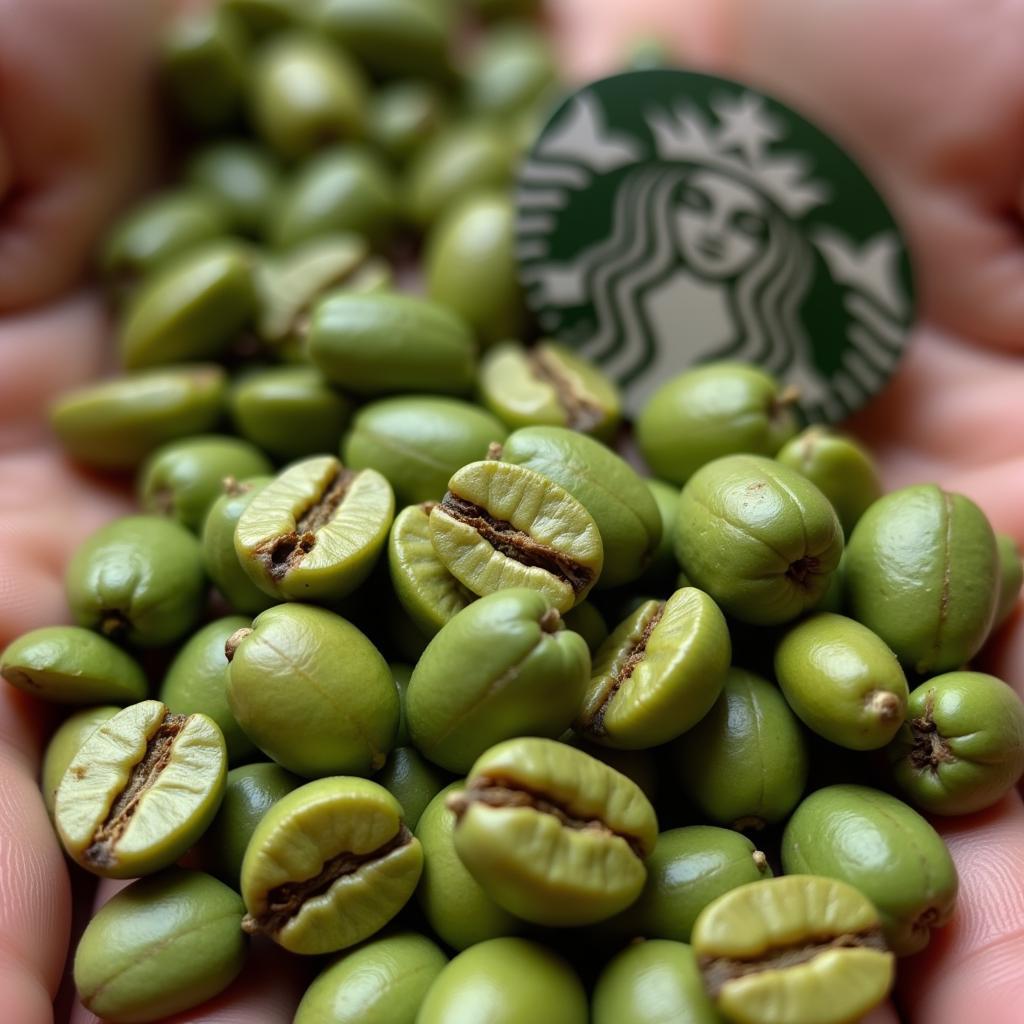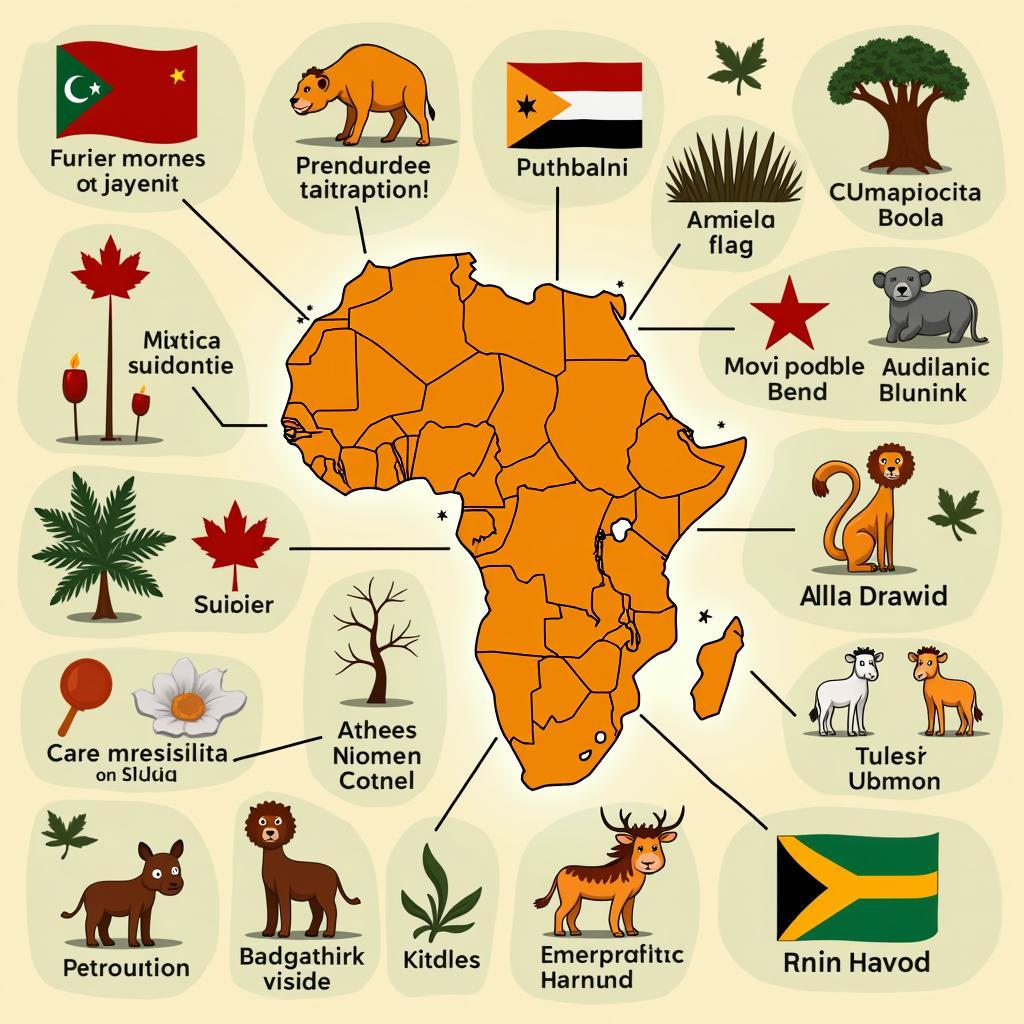African Coffee at Starbucks: A Journey Through Flavor and Origin
African coffee has become increasingly popular at Starbucks, offering a diverse range of flavors and experiences for coffee lovers. This article explores the fascinating world of African coffee beans featured at Starbucks, delving into their unique characteristics, origins, and the impact they have on local communities.
Discovering the Richness of African Coffee Beans at Starbucks
From the bright acidity of Ethiopian Yirgacheffe to the earthy notes of Rwandan coffee, Starbucks showcases a selection of African beans that cater to a variety of palates. What makes African coffee so special is not only its diverse flavor profiles but also the stories behind each bean, reflecting the rich cultural heritage and traditions of the regions where they are grown. The relationship between Starbucks and African coffee farmers is a testament to the company’s commitment to ethical sourcing and sustainable practices.
Exploring the Origins of Starbucks’ African Coffee
Starbucks sources its African coffee from various countries, each offering a distinct flavor profile. Ethiopian coffee, known for its floral aromas and citrusy acidity, is a staple in Starbucks’ offerings. Kenyan coffee, with its vibrant acidity and black currant notes, is another popular choice. Furthermore, Starbucks features coffees from Rwanda, known for its delicate sweetness and fruity notes, and Burundi, which offers a complex cup with hints of chocolate and spice.
 Ethiopian Yirgacheffe Coffee Beans at Starbucks
Ethiopian Yirgacheffe Coffee Beans at Starbucks
The diverse climates and terrains across the African continent contribute to the unique characteristics of each coffee origin. High-altitude regions, like those in Ethiopia and Kenya, produce beans with a brighter acidity, while lower-altitude regions, such as parts of Rwanda and Burundi, yield coffees with a fuller body and richer flavors. This diversity allows Starbucks to offer a wide range of African coffees, satisfying a broad spectrum of coffee preferences.
The Impact of Starbucks on African Coffee Farmers
Starbucks’ commitment to ethical sourcing practices has a significant impact on African coffee-growing communities. By partnering with farmers through programs like Coffee and Farmer Equity (C.A.F.E.) Practices, Starbucks ensures fair prices, supports sustainable farming methods, and invests in community development projects. These initiatives empower farmers to improve their livelihoods, protect their environment, and produce high-quality coffee beans.
 Rwandan Coffee Farmer with Starbucks Representative
Rwandan Coffee Farmer with Starbucks Representative
Dr. Amani Kiflemariam, a renowned agricultural economist specializing in East African coffee production, notes, “Starbucks’ engagement in direct trade relationships has significantly improved the economic stability of many coffee farming communities in Africa, allowing them to invest in better farming practices and improve their overall quality of life.” This collaboration not only benefits the farmers but also ensures a consistent supply of high-quality African coffee for Starbucks customers.
The Future of African Coffee at Starbucks
As consumer demand for specialty coffee continues to grow, Starbucks is likely to expand its offerings of African coffee. This includes exploring new origins, showcasing unique processing methods, and continuing to support sustainable farming practices. By fostering strong relationships with African coffee farmers, Starbucks can continue to provide its customers with exceptional coffee while contributing to the economic and social development of these communities.
Professor Joseph M’bogo, a leading expert in sustainable coffee agriculture at the University of Nairobi, observes, “Starbucks’ commitment to sourcing high-quality African coffee not only provides consumers with a unique coffee experience but also encourages sustainable farming practices that benefit the environment and local communities. This creates a positive feedback loop that elevates the entire coffee industry.”
In conclusion, African coffee at Starbucks provides a delicious and ethical way to experience the diverse flavors and rich cultural heritage of the African continent. By supporting sustainable farming practices and empowering local communities, Starbucks is ensuring a bright future for both African coffee farmers and coffee lovers alike.
FAQ
-
What types of African coffee does Starbucks offer?
Starbucks offers a variety of African coffees, including Ethiopian Yirgacheffe, Kenyan, Rwandan, and Burundi. -
How does Starbucks support African coffee farmers?
Starbucks supports African coffee farmers through programs like C.A.F.E. Practices, ensuring fair prices, sustainable farming methods, and community development projects. -
What are the flavor characteristics of Ethiopian coffee?
Ethiopian coffee is known for its floral aromas, citrusy acidity, and bright, complex flavors. -
What makes Kenyan coffee unique?
Kenyan coffee is characterized by its vibrant acidity, black currant notes, and full body. -
What is the impact of Starbucks’ ethical sourcing practices?
Starbucks’ ethical sourcing practices empower farmers, improve livelihoods, protect the environment, and ensure high-quality coffee beans. -
Where can I find more information about Starbucks’ coffee sourcing?
You can find more information on Starbucks’ website and in their published reports. -
How can I learn more about African coffee origins?
Explore various online resources and books specializing in coffee origins, or visit a Starbucks store and speak with a barista.
For further assistance, please contact us at Phone Number: +255768904061, Email: kaka.mag@gmail.com or visit our address: Mbarali DC Mawindi, Kangaga, Tanzania. We have a 24/7 customer service team.
